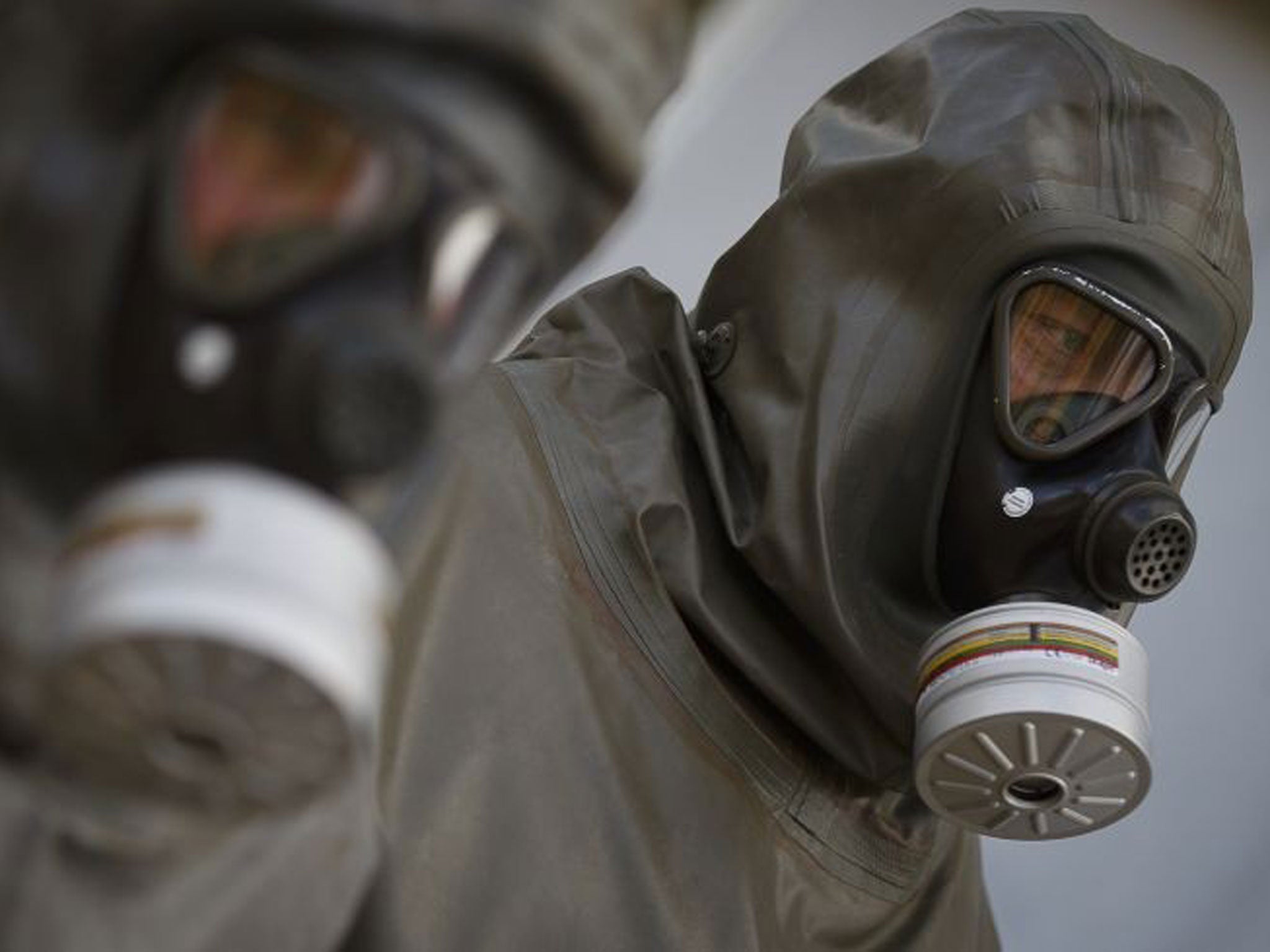Syria’s chemical weapons production equipment is destroyed, watchdog says
First stage in disarmament completed ahead of schedule

Your support helps us to tell the story
From reproductive rights to climate change to Big Tech, The Independent is on the ground when the story is developing. Whether it's investigating the financials of Elon Musk's pro-Trump PAC or producing our latest documentary, 'The A Word', which shines a light on the American women fighting for reproductive rights, we know how important it is to parse out the facts from the messaging.
At such a critical moment in US history, we need reporters on the ground. Your donation allows us to keep sending journalists to speak to both sides of the story.
The Independent is trusted by Americans across the entire political spectrum. And unlike many other quality news outlets, we choose not to lock Americans out of our reporting and analysis with paywalls. We believe quality journalism should be available to everyone, paid for by those who can afford it.
Your support makes all the difference.All of Syria’s equipment for producing chemical weapons has been destroyed, the international watchdog overseeing the process has announced.
Removing Bashar al-Assad’s capacity to add to his existing stockpile, the news has been declared a day ahead of schedule in what has been hailed as a major positive step along the ambitious timeline to see all chemical weapons in Syria eradicated by mid-2014.
The Organisation for the Prohibition of Chemical Weapons (OPCW) had set Damascus a 1 November deadline to “destroy or render inoperable” its facilities and machinery used to mix chemicals into poison gas and fill warheads and munitions.
Inspectors from a joint UN and OPCW team have also completed their first round of visits verifying the facilities declared by Syrian authorities. They have inspected 21 out of the 23 sites named, unable to reach the other two because of security concerns.
If they were declared correctly by Damascus, today’s announcement will mean Syria is unable to add to its reported 1,000 metric tonnes of chemicals and weapons, which include mustard gas and the nerve agent sarin.
A statement issued by the OPCW said its team is “now satisfied that it has verified — and seen destroyed — all of Syria's declared critical production and mixing and filling equipment”.
It added that “no further inspection activities are currently planned”.
“We have personally observed all the destruction activities,” the OPCW’s head of field operations Jerry Smith told the BBC.
And in a further indication of the successful progress made in Syria, a group of eight inspectors returned to the organisation’s headquarters in the Hague today.
They were met by director general Ahmet Uzumcu, who thanked them and said: “I salute the fortitude and courage you've all demonstrated in fulfilling the most challenging mission ever undertaken by this organization.”
The next step in the process of disarmament will be for a committee of the OPCW to meet next month and consider a plan, submitted by the Syrian government, for the total destruction of its chemical weapons.
Earlier in October the OPCW was awarded the Nobel Peace Prize 2013 for its efforts towards destroying all chemical weapons – with the Nobel committee stressing the Syrian operation was only one factor in their decision.
While the 16-year-old girls’ education activist Malala Yousafzai had been hotly tipped to win ahead of the announcement, Mr Smith said it was a “pleasant surprise” that his organisation was recognised, though he added they had been too busy to celebrate properly.
Join our commenting forum
Join thought-provoking conversations, follow other Independent readers and see their replies
Comments